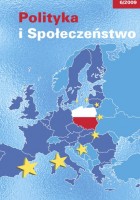SŁOWACJA NA DRODZE DO UNII EUROPEJSKIEJ
Slovakia on the Road to the European Union
Author(s): Krzysztof ŻarnaSubject(s): EU-Approach / EU-Accession / EU-Development
Published by: Wydawnictwo Uniwersytetu Rzeszowskiego
Keywords: Slovakia; European Union
Summary/Abstract: The Slovak Republic was born on 1 January 1993 resulting from a disintegration of the Czecho-Slovak Federation. Just like in the case of the other Eastern European countries, its foreign policy priority was defined in terms of the Republic’s integration with Euro-Atlantic structures. Compared to the other states in the region, the road of Slovakia to the European Union seems most exceptional. This exceptionality was caused by the political line pursued by Vladimír Mečiar’s cabinet in the period of 1994– 1998, which led to international isolation of Slovakia, made the country's bilateral relations with the neighbouring countries deteriorate, and let basic human rights be violated. Discrimination of the Roma and Hungarian minorities, using secret police forces to fight opposition as well as an increase in nationalist feelings resulted in Slovakia’s drop-out of the first group of CEE countries to apply for the EU membership. Slovakia’s relations with Hungry were particularly tense because of the Hungarian minority problem and the issue of Beneš’s decrees constituting a basis on which the property of many Hungarians had been confiscated after the war. The situation changed in 1998 when the so called „broad coalition” assumed power in Slovakia, led by Mikulaš Dzurinda. Dzurinda's cabinet's energetic efforts resulted in the Slovak Republic being invited back to the membership negotiations during the EU summit in Helsinki in 1999. In a short time the Slovaks became the leader of the negotiation process. Slovakia became a country attractive for many foreign investors, which contributed to its rapid economic growth. The systemic and economic transformation entailed, however, considerable costs exemplified by the rise of unemployment and much increased budget expenses to cover the social assistance needs. The EU accession referendum proved to be the Slovak population's manifestation in support of European integration. The fact that the referendum attendance only slightly exceeded the required minimum of 50% was, nonetheless, a case of concern. Representatives of practically all of the Slovak political parties spoke enthusiatically in favour of accession to the European Union. Some doubts were only voiced regarding dominant social views. Slovakia is a country of fairly small demographic potential. It is inhabited by barely 5,4 mln people. This is translated into an expected level of influence of Slovakia within the EU, which is insignificant. The Slovaks are represented by 1 commissioner, 14 deputies at the European Parliament, 7 ballots in the Council of the European Union, and some representatives in other Union’s institutions. In the circumstances, the Slovaks will be forced to seek allies to pursue their goals.
Journal: Polityka i Społeczeństwo
- Issue Year: 2009
- Issue No: 06
- Page Range: 132-140
- Page Count: 9
- Language: Polish

